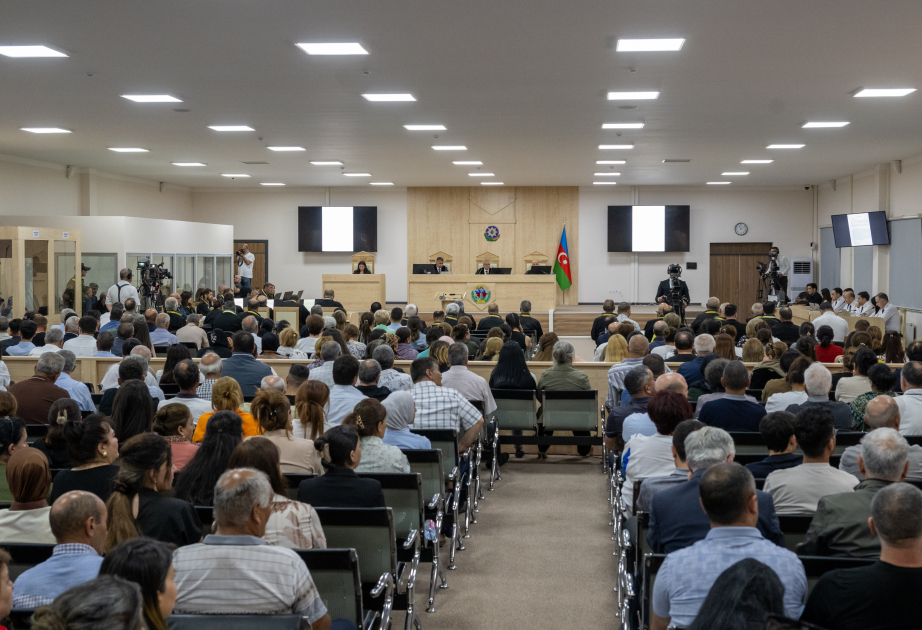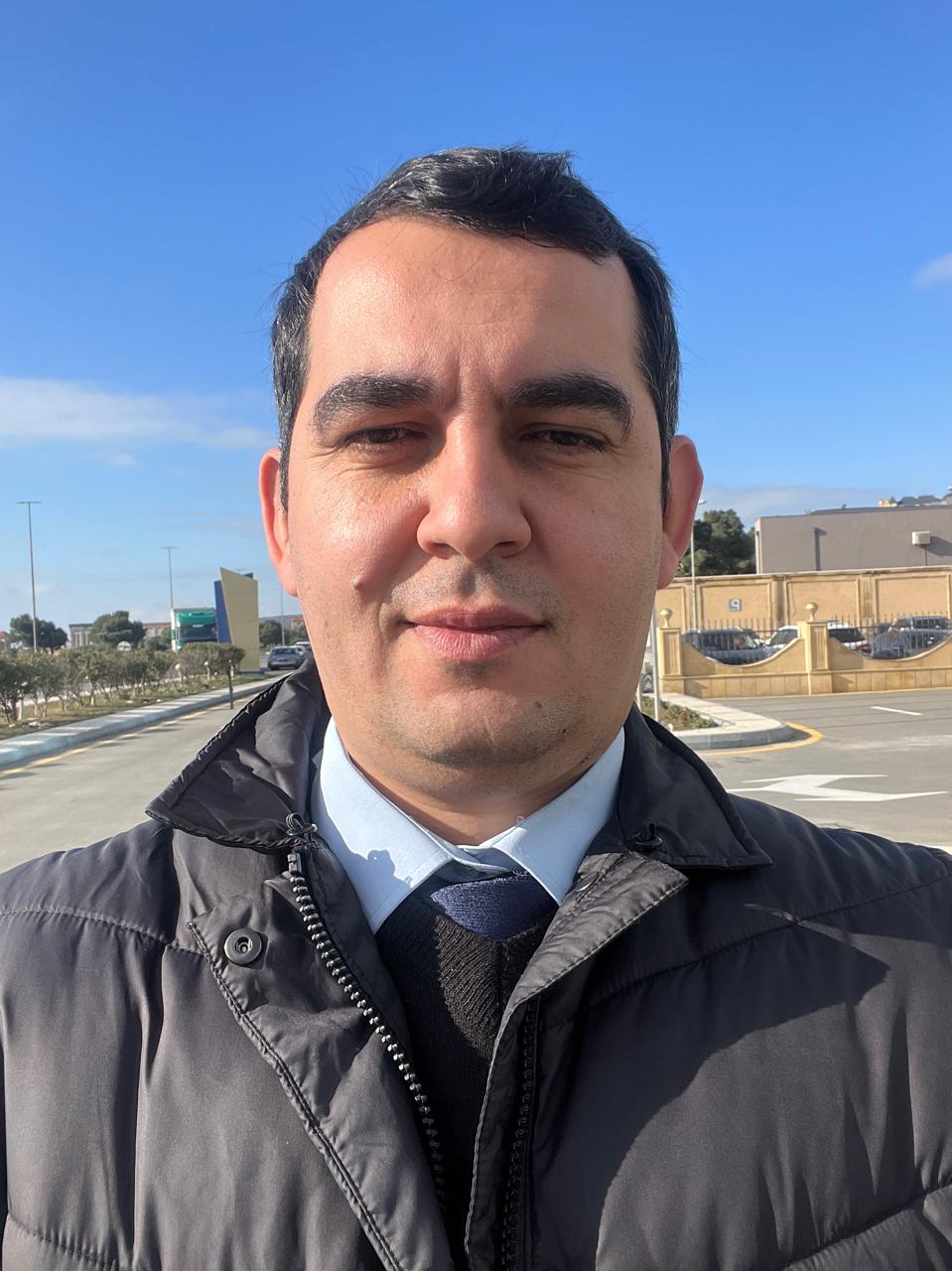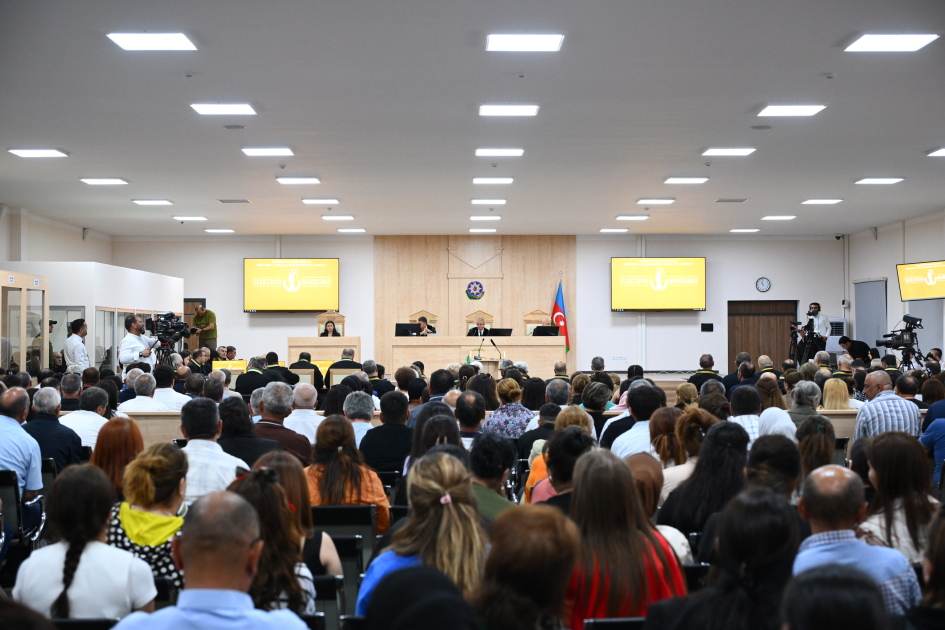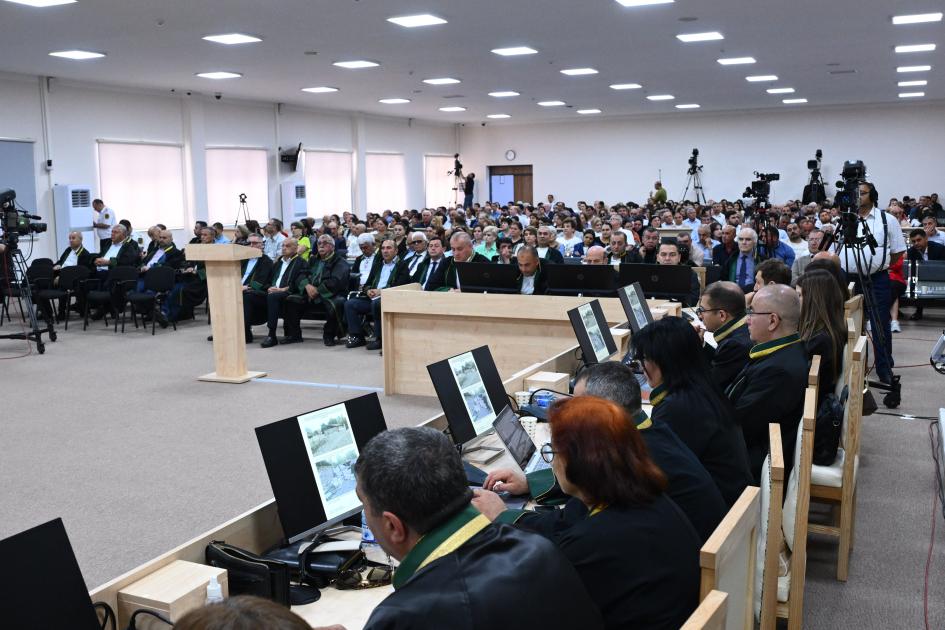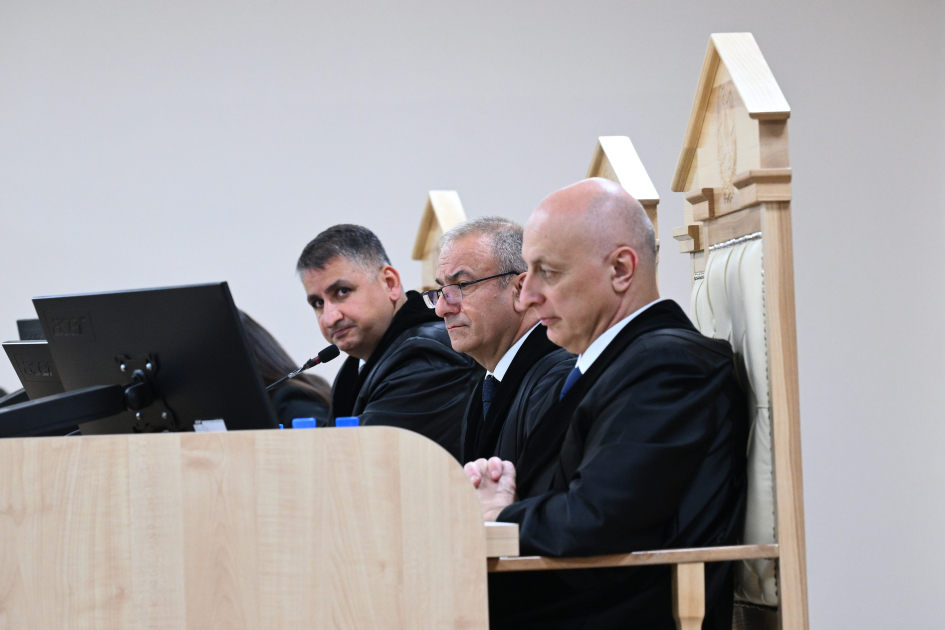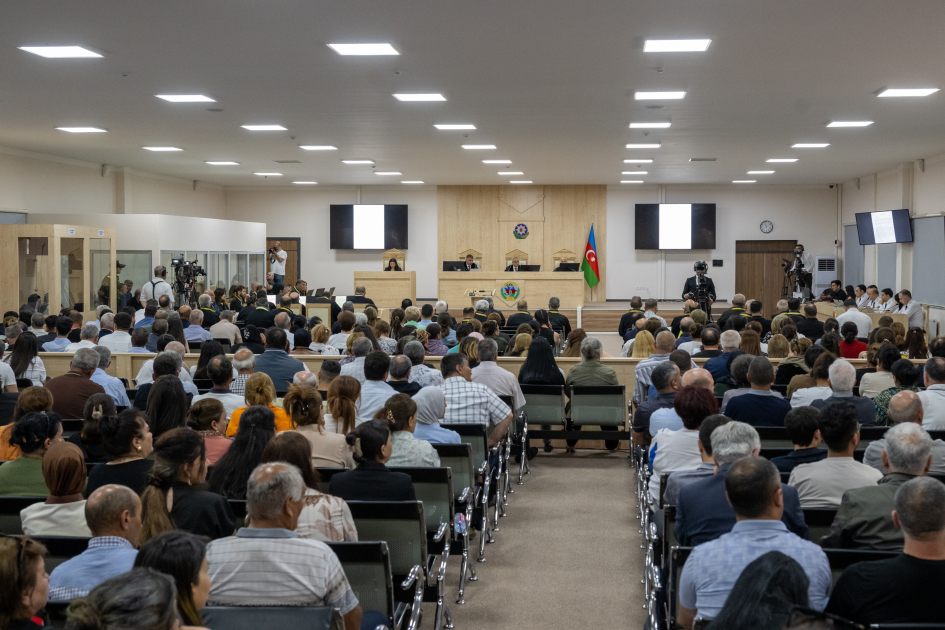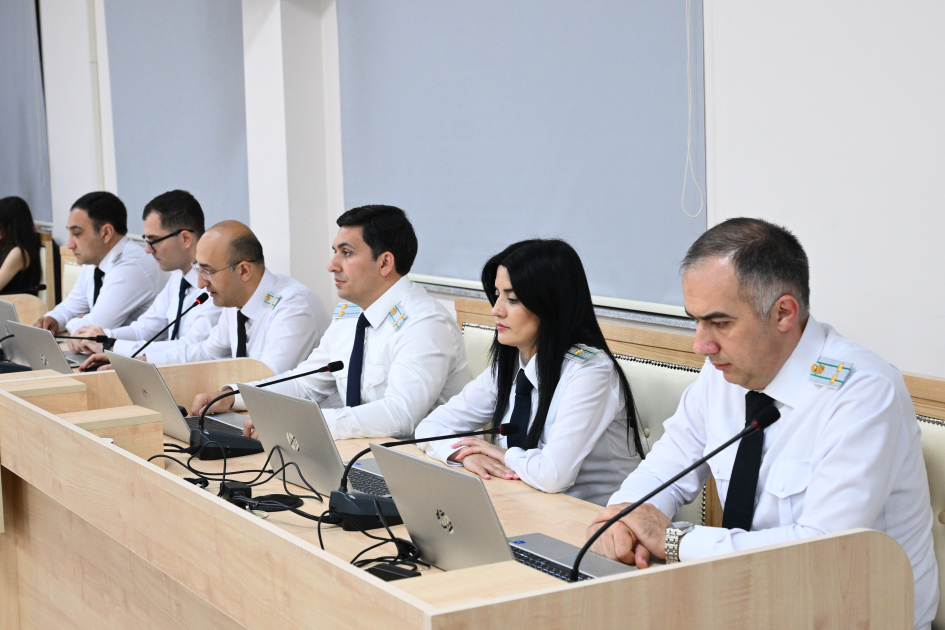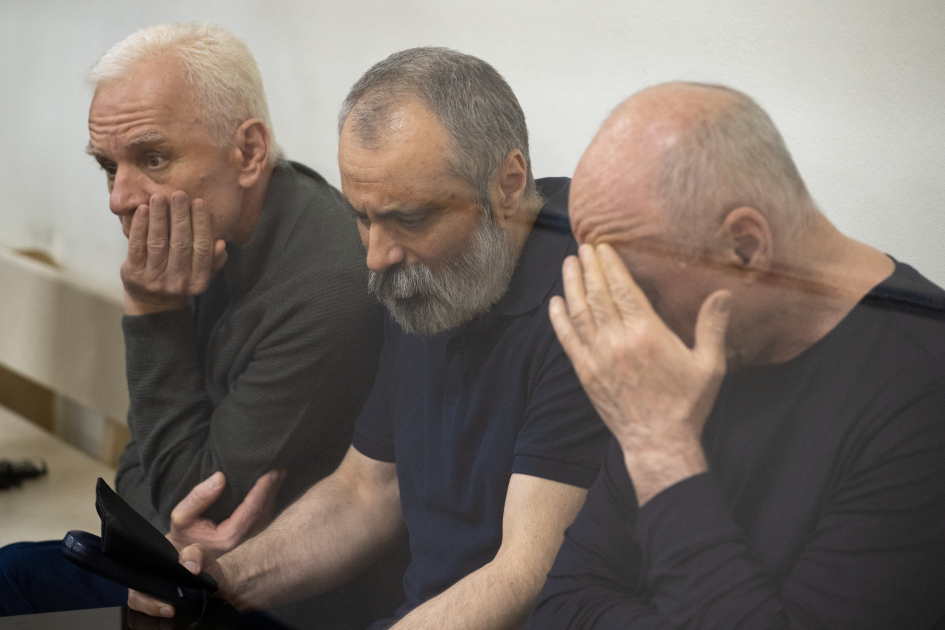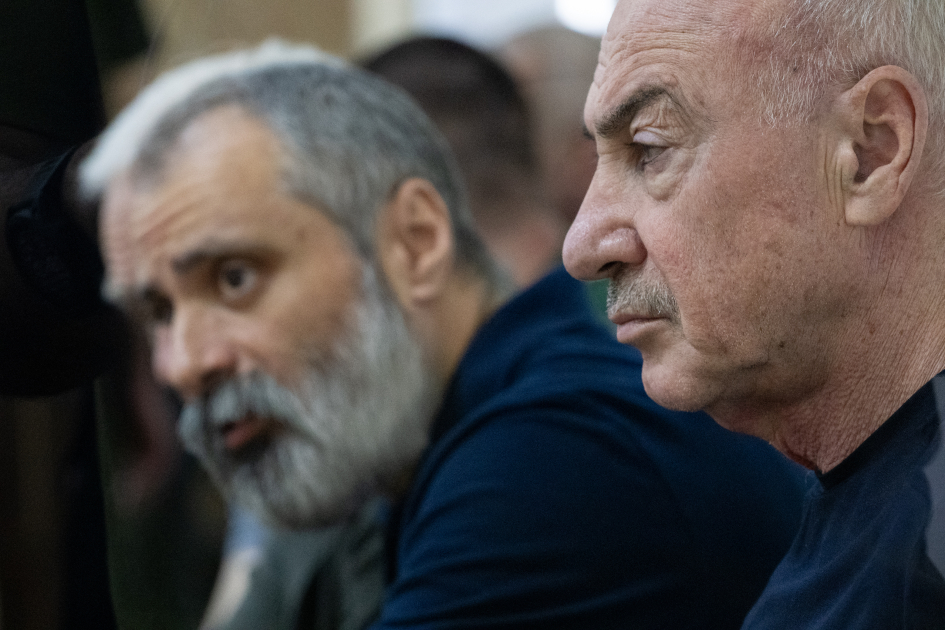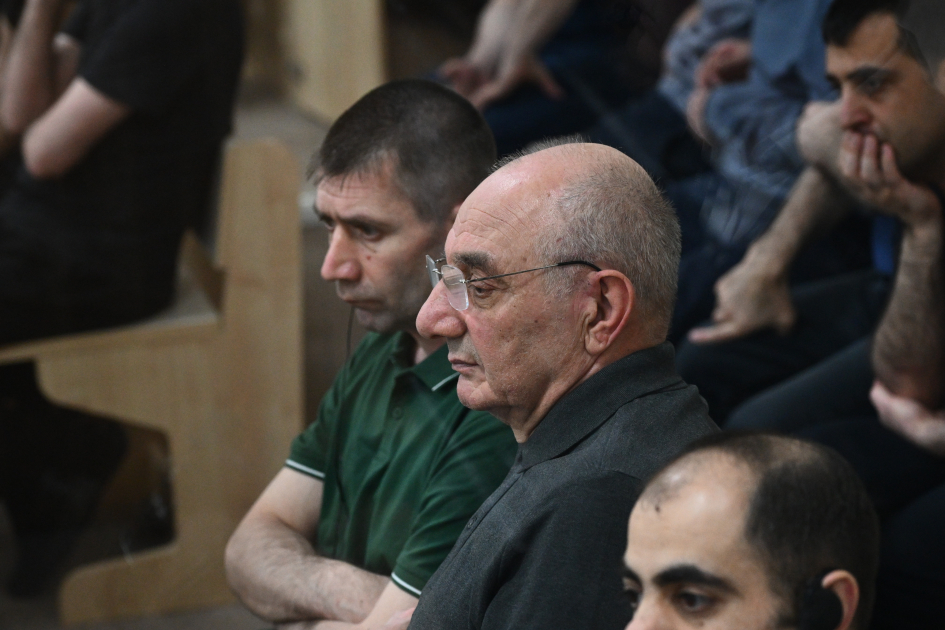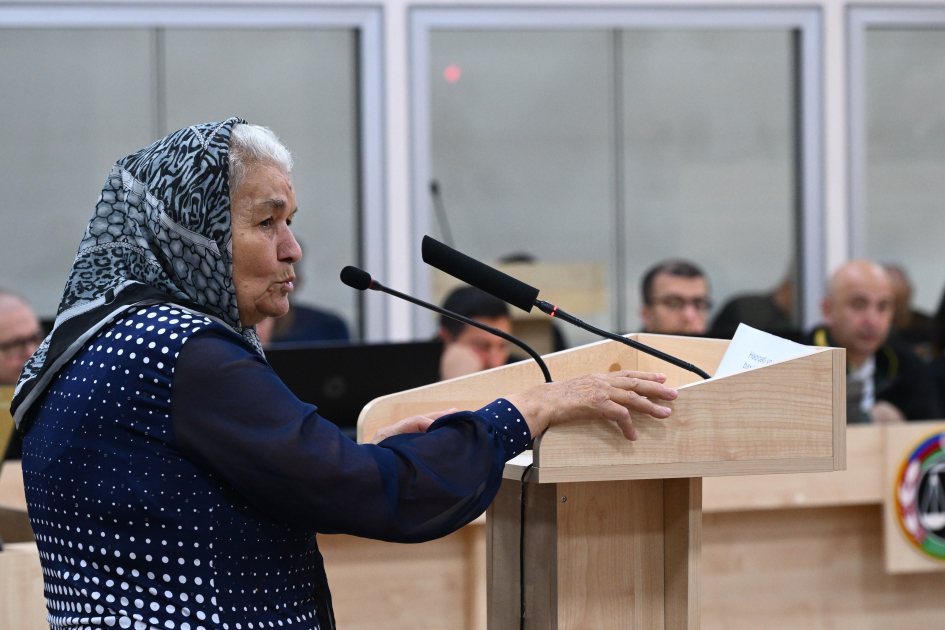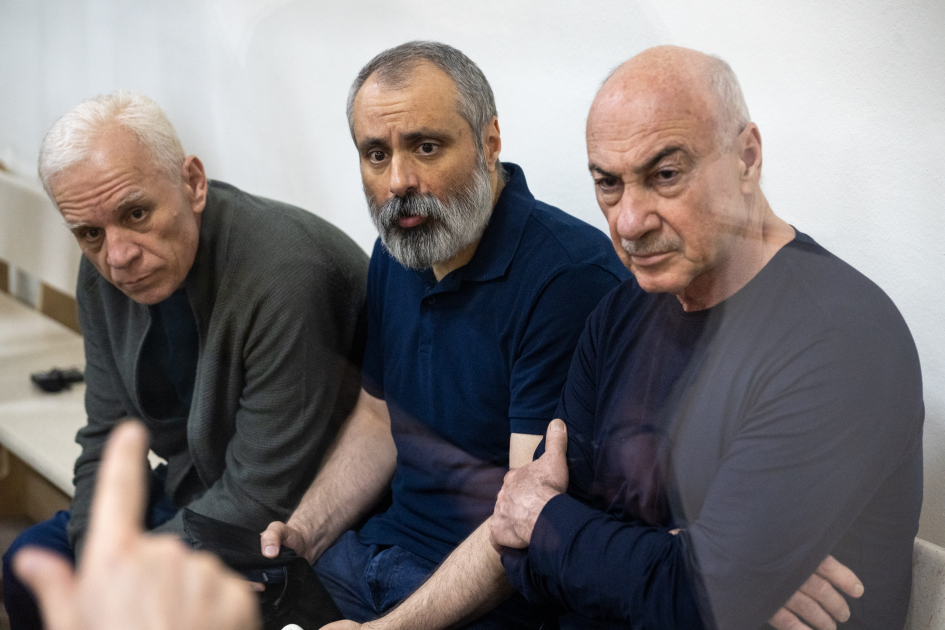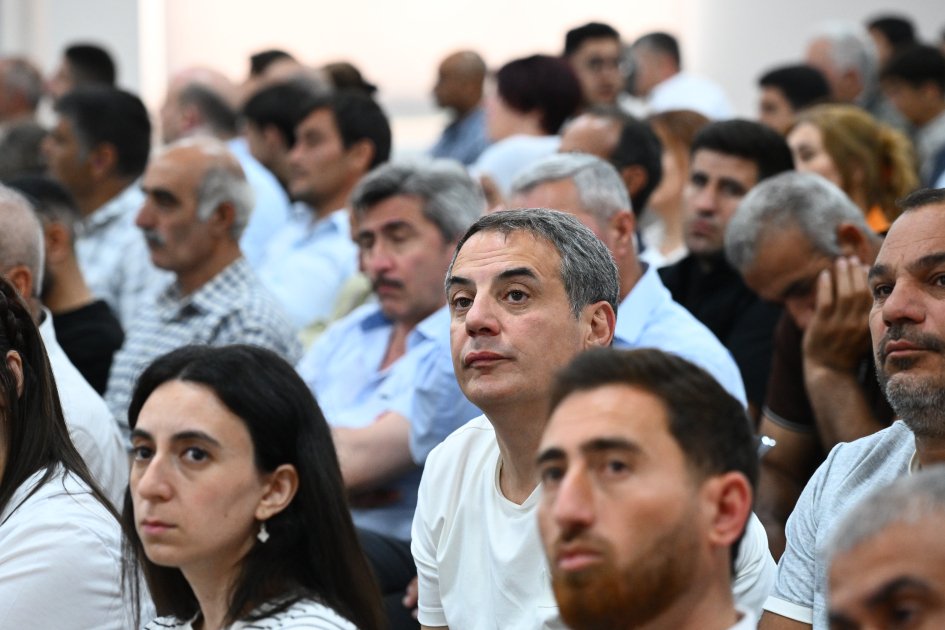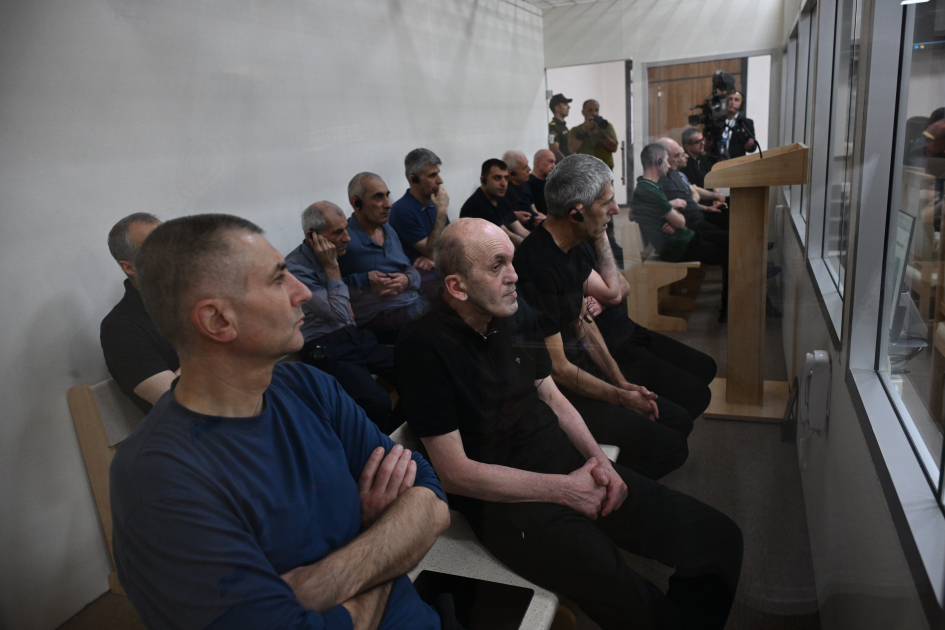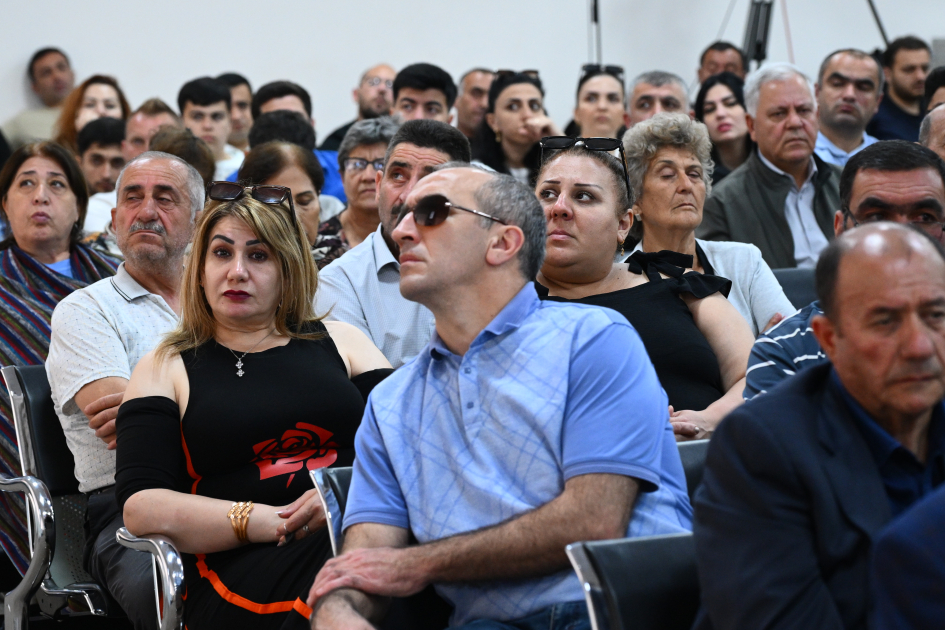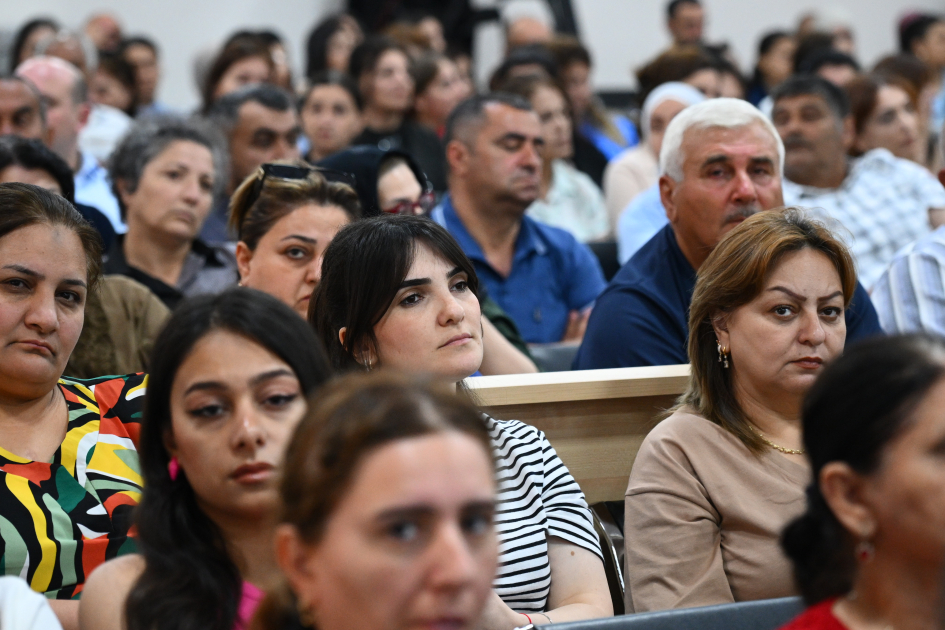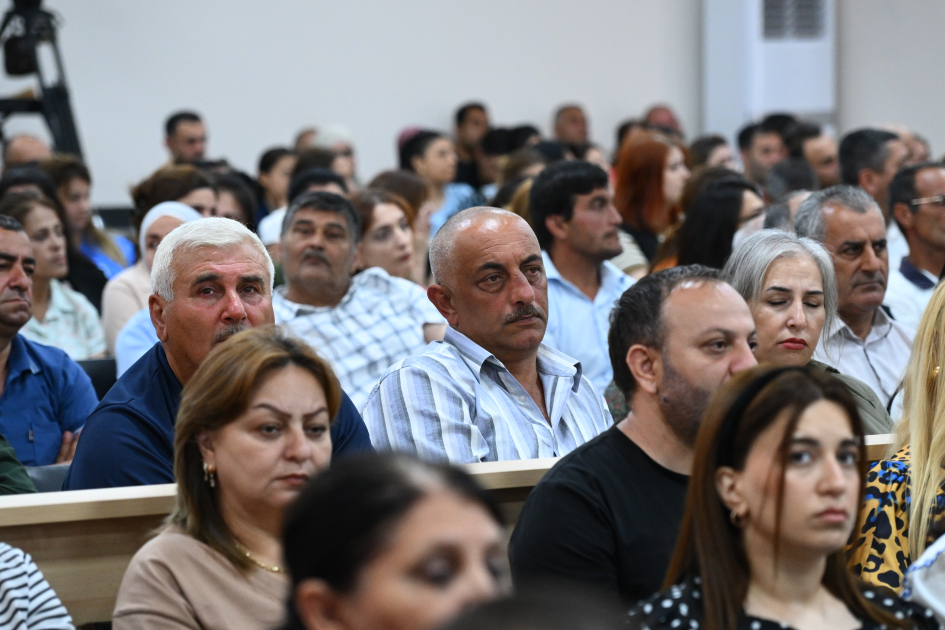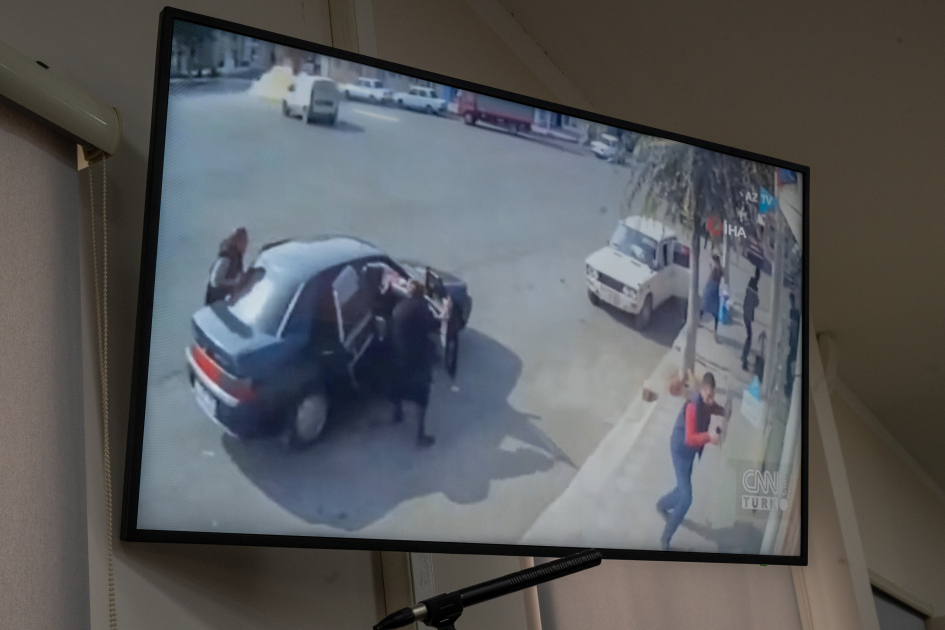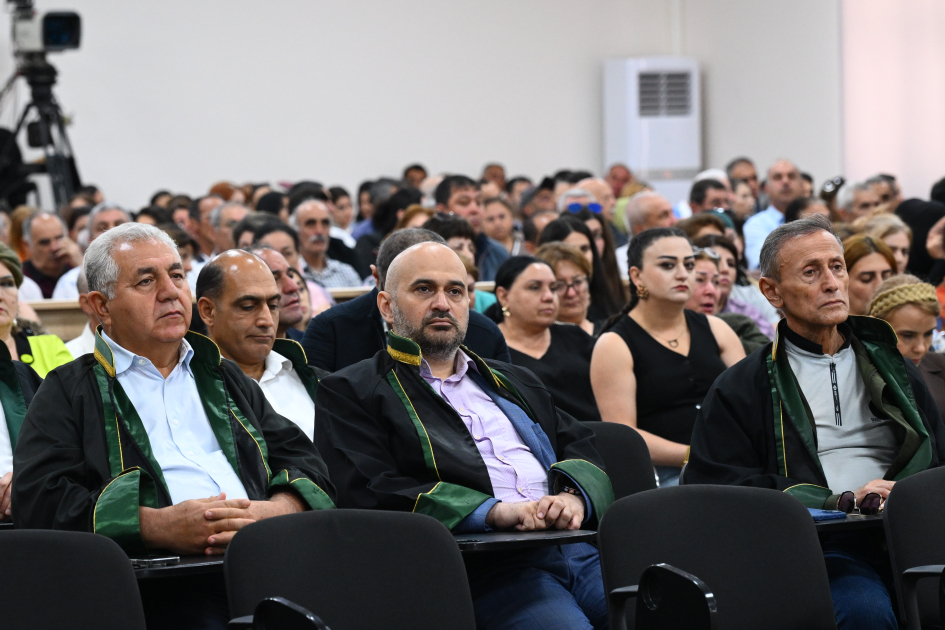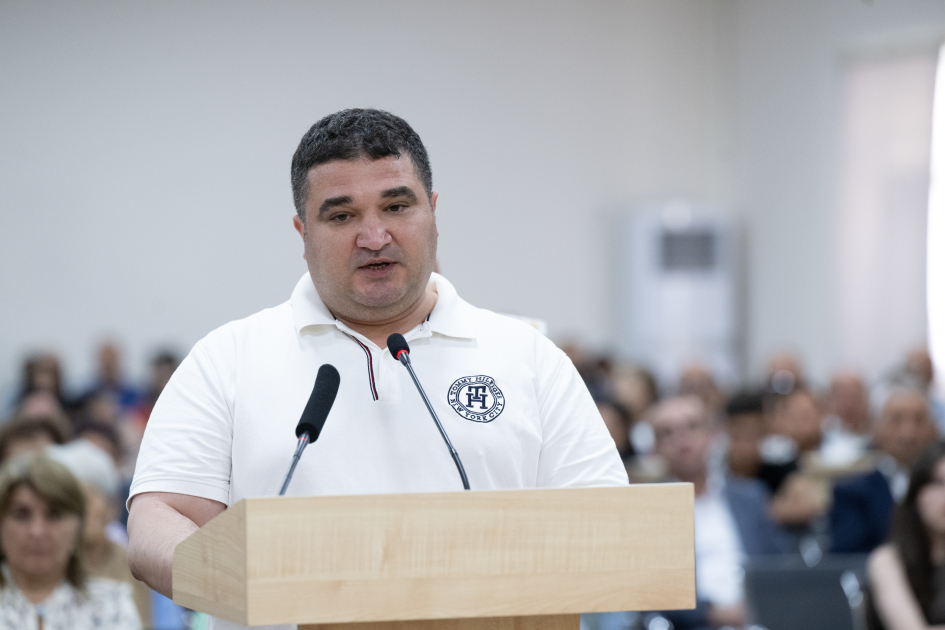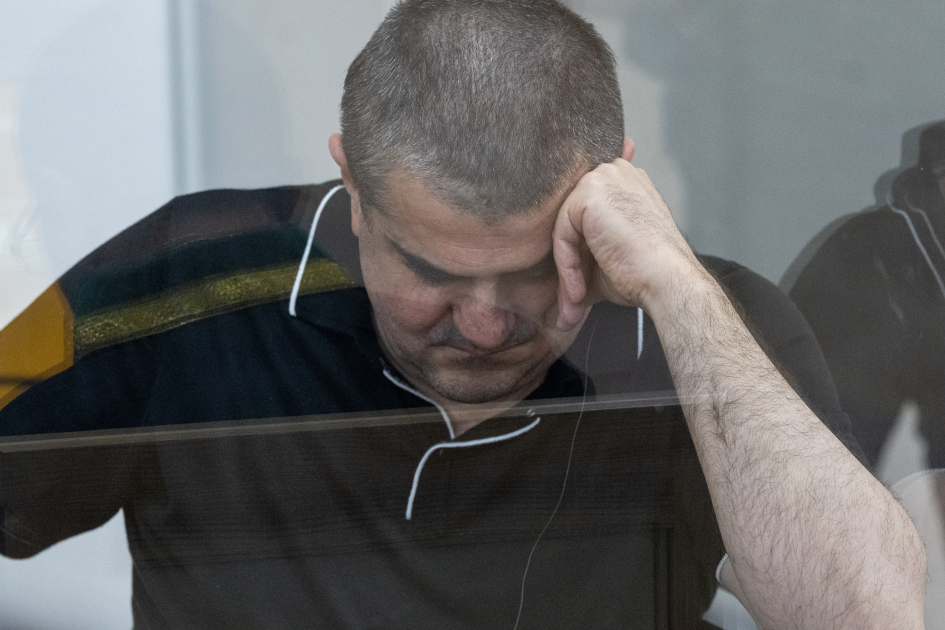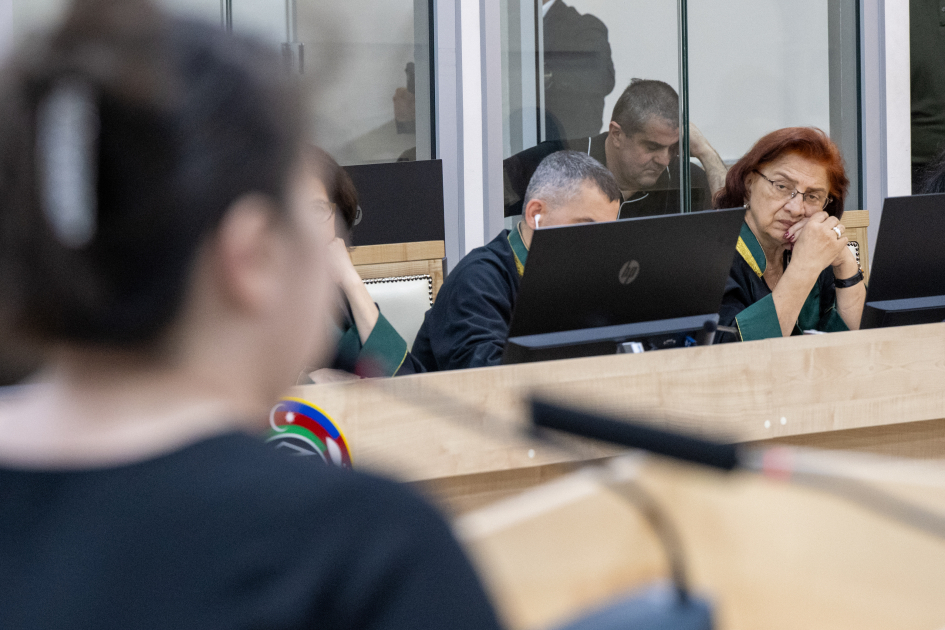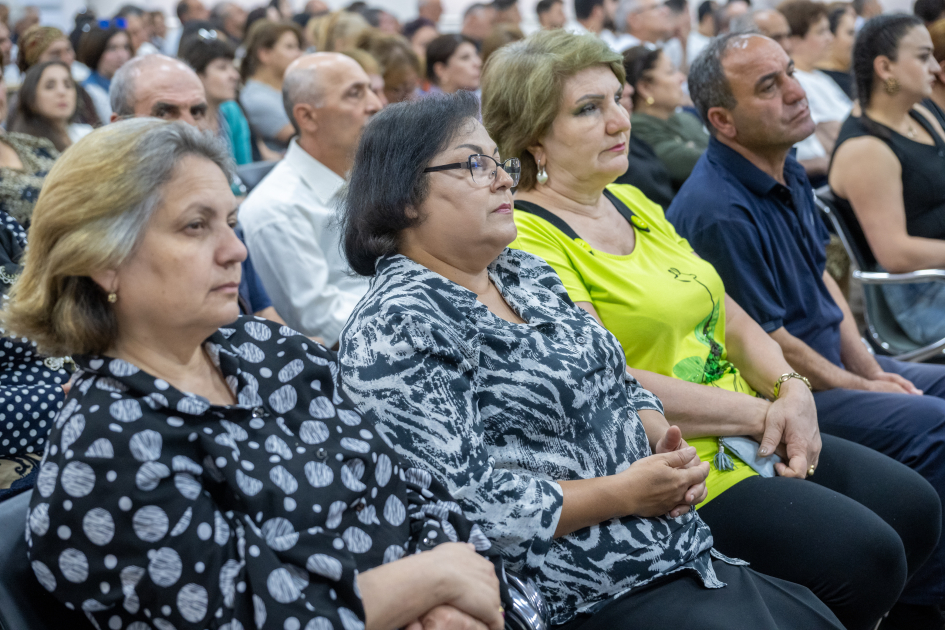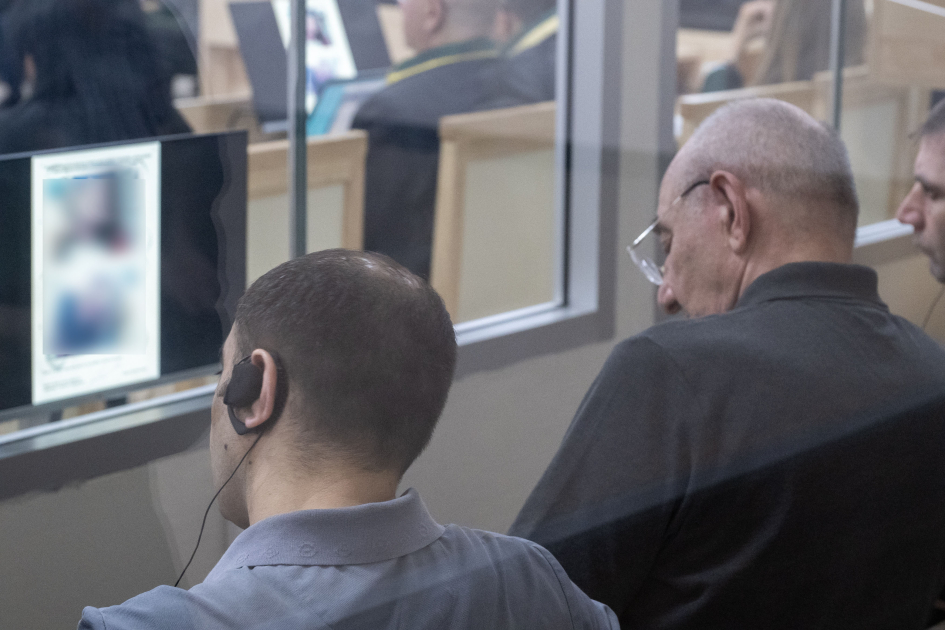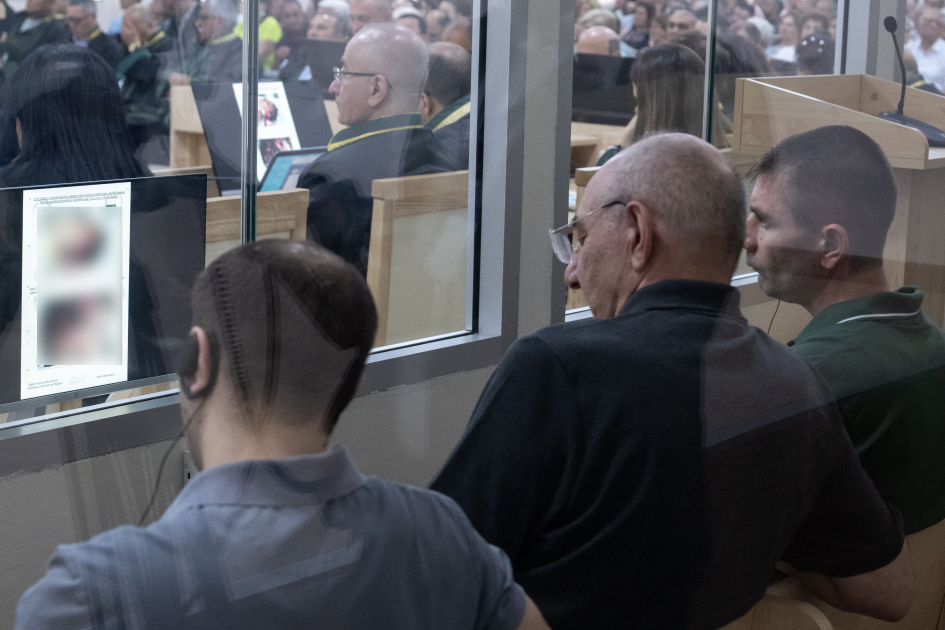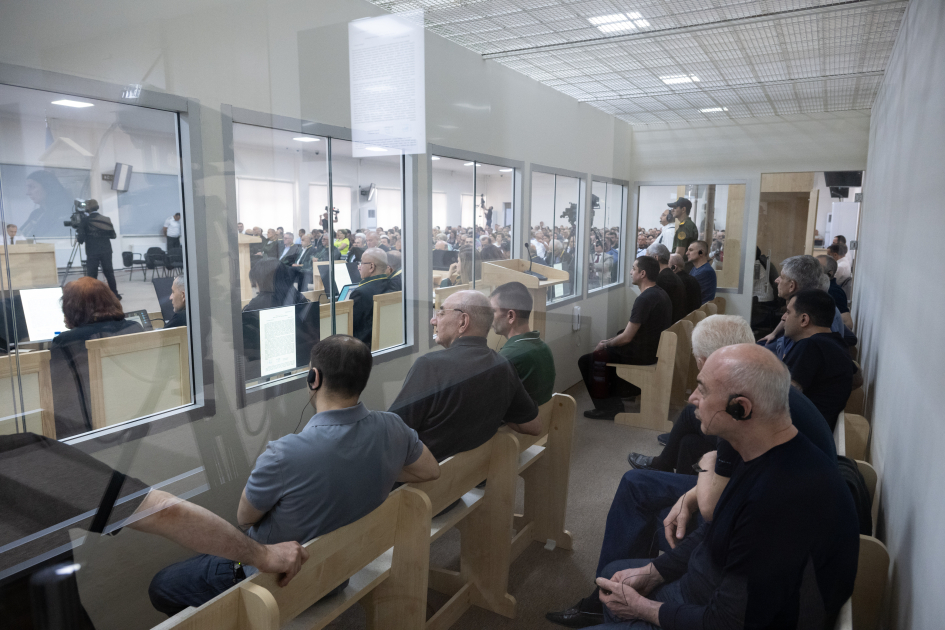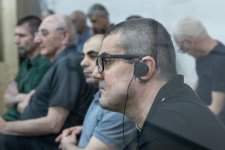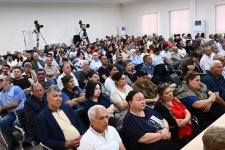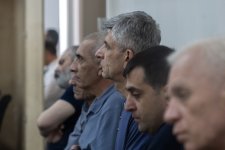BAKU, Azerbaijan, June 2. The open court session continued on June 2 at the Baku Military Court in the criminal case against Armenian citizens Arayik Harutyunyan, Arkadi Ghukasyan, Bako Sahakyan, Davit Ishkhanyan, David Babayan, Levon Mnatsakanyan, and others. They stand accused of crimes against peace and humanity, including war crimes, preparing and waging aggressive war, genocide, violations of the laws and customs of war, terrorism, financing terrorism, forcible seizure and retention of power, and other grave offenses arising from Armenia’s military aggression against Azerbaijan, Trend reports.
The court session, presided over by Judge Zeynal Aghayev, with Judges Jamal Ramazanov and Anar Rzayev (alternate judge Gunel Samadova), ensured that each defendant had legal representation and interpretation in their native language.
The session was attended by the accused, their lawyers, several victims and their legal successors and representatives, as well as state prosecutors.
At the beginning, Judge Zeynal Aghayev introduced the court staff and interpreters and explained the legal rights and obligations to the victims who were participating in the court proceedings for the first time.
The court reviewed the incident scene inspection protocols and expert opinions regarding the damage to Azerbaijan’s civilian infrastructure and the civilian casualties during the 44-day war in 2020, with Senior Assistant to the Prosecutor General Vusal Aliyev in attendance.
At the outset, documents concerning the shelling of the Aghjabadi district during the war were examined. It was reported that as a result of the armed attacks and military aggression launched by the Armenian armed forces on September 27, 2020, at around 6:00 a.m., one civilian was deliberately killed, and 19 others sustained varying degrees of bodily injuries in the Aghjabadi district. Among those wounded were 5 women and 14 men, including 2 minors.
The armed attacks and military aggression also caused significant material damage in the Aghjabadi district, affecting 536 civilian buildings, 17 vehicles, and 50 farms.
As a consequence of the armed attacks and military aggression, the Aghjabadi district experienced substantial material damage, impacting 536 civilian buildings, 17 vehicles, and 50 farms.
According to official documents, starting from September 27 to November 10, 2020, the Aghdam district came under heavy artillery fire from the Armenian armed forces. Weapons used included tanks such as the T-64, T-72, T-80, T-90; self-propelled artillery systems like the 2S3 Akatsiya, 2S1 Gvozdika; and large-caliber cannons such as the 2A36 Giatsint-B, D-20, D-30, D-44, and D-81/D-81M, as well as mines, grenade launchers, and BM-21 ("Grad") multiple rocket launchers.
As a result of this, 7 civilians were intentionally massacred and 46 civilians injured in the Aghdam district.
Substantial material damage was inflicted on state property, as well as on 2,098 individuals and 2 legal entities.
According to other documents, in Beylagan district, 2 civilians were killed and 5 others received injures due to shelling; 73 civilian structures and 3 vehicles were also damaged. 62 individual homes, 10 business premises, and 1 administrative facility were among the buildings affected in Beylagan.
The area was shelled using 122-mm Grad rocket "G2000" and "9M528" Smerch 300-mm rocket launch systems in Barda district, with inspections confirming that. From October 5 to November 7, 2020, 29 civilians were intentionally killed, and 112 were injured. Substantial material damage was reported to state property, 333 individuals, and 2 legal entities.
According to documents, 3 civilians were intentionally killed, and 17 were injured. Extensive material losses affected state property and 376 individuals in Fuzuli district.
It was reported that during the 44-day war, 8 people were killed and 12 were injured by rocket and explosive device attacks in Goranboy district and Naftalan city. 368 individuals reported property damages, 7 vehicles were damaged, and 8 non-residential buildings were also affected.
Afterwards, documents regarding the shelling of the city of Mingachevir were reviewed. As indicated in the analyzed documents, the city of Mingachevir, the 4th largest city of the Republic of Azerbaijan, positioned completely beyond the area of conflict, as well as the "Azerbaijan Thermal Power Plant" Limited Liability Company (LLC) – the country’s major electricity supplier - located in the city were deliberately targeted by the Armenian armed forces with "Smerch" multiple-launch rocket systems, which have a great destructive power, on October 4, 2020, at about 22 p.m., with shots being fired in that direction.
The investigation identified that one of the "Smerch" missiles exploded in front of a gate built in the courtyard of a private residential house belonging to Baghirov Elchin Yagub, born August 21, 1984, located at Bozdag Street 60, Mingachevir city. As a result, the house, the Hyundai Grandeur belonging to the victim, the “Kamaz 55111” truck parked in front of the courtyard, belonging to the victim’s relative, a resident of the Evoghlu village of Aghdam district, Safarov Atamoghlan Sabir oglu, born September 10, 1958, were damaged. Additionally, Baghirov Elchin Yagub oglu, his mother Baghirova Nabat Charkaz gizi, born September 10, 1957; his relative Safarov Atamoghlan Sabir oglu, as well as the resident of the neighboring house Ibrahimli Adil Mushvig oglu born September 2, 2004, sustained body injuries.
The investigation determined that the distance from the scene to the “Azerbaijan Thermal Power Plant” LLC was 2,800 meters, and the distance to the dam of the Mingachevir water reservoir is 5,300 meters.
One of the "Smerch" missiles fell into the empty area between the 6th and 7th power units of the "Azerbaijan Thermal Power Plant" LLC located in the Azdres settlement of Mingachevir city, pierced the asphalt cover, sinking to the depth of 40 centimeters, and fortunately did not explode. The distance from the missile’s impact site to the entrance door of the 6th power unit of the "Azerbaijan Thermal Power Plant" LLC was 19 meters, and the distance to the entrance door of the 7th power unit was 29 meters.
The hearing also determined that the Armenian armed forces deliberately targeted the city of Mingachevir after October 4, firing rockets in that direction. Thus, on October 11, at around 05:00, the area where the “Azerbaijan Thermal Power Plant” LLC is located was targeted once again and the fired rocket fell into the grass-covered area in the park located at the courtyard of the LLC’s administrative building. Fortunately, it did not explode, leaving no deaths or injuries.
No military facilities were located in the vicinity of the scene.
During the incidents, 45 private houses were damaged in Mingachevir.
Then the court reviewed documents regarding the targeting of the Baku-Tbilisi-Ceyhan pipeline and the South Caucasus Pipeline with Smerch missiles during the war. These documents detail instances of missile launches directed toward the Yevlakh district and Goran village in the Goranboy district.
The court also reviewed documents related to the deaths of civilians, damage to civilian infrastructure, and destruction of private property in Tartar district. The destructions and fatalities resulted from heavy artillery shelling during the 44-day war.
Following the break, statements from victims were heard in court.
Victim Parvin Gasimova testified that on the morning of October 4, 2020, a missile fired by Armenian armed forces struck the house they lived in on Aziz Aliyev Street in Ganja city. As a result, she lost her eyesight and sustained injuries to her face, arms, and other parts of her body. Her mother, who was at home during the incident, was also injured.
In response to questions from public prosecutor Vusal Abdullayev, the victim stated that her 3-year-old and 4-month-old daughters were at home at the time of the incident, adding that her eldest daughter is still dealing with emotional distress: “When an aircraft passes overhead, she fears that a rocket may strike the house. The sound of fireworks triggers intense fear and panic."
Victim Irada Gasimova confirmed what her daughter P. Gasimova said, noting that she had lost consciousness during the incident. Gasimova mentioned that she’s still getting treatment for her injuries.
While answering questions from prosecutor Tarana Mammadova, I. Gasimova said: “My oldest granddaughter is still scared. She keeps asking if they’re going to fire rockets at our house again. I tell her, Baby, nothing more will happen.”
Victim Qoshgar Khalilov stated that he was recognized as the legal heir of his children - Khalilli Orkhan Qoshgar oglu and Amrahli Maryam Qoshgar gizi. He noted that on October 17, 2020, at around 1:00 am, when the city of Ganja came under heavy artillery shelling by the Armenian military forces, a rocket fell near his house on M. Hajiyev Street and exploded, killing his son Orkhan, daughter Maryam, his ex-wife Khatira Gahramanova, and sister-in-law Laman, who lived in that house.
In response to a question from Nasir Bayramov, Head of the Department of Public Prosecutions at the Prosecutor General’s Office, Qoshgar Khalilov mentioned that there were no military facilities in that area.
Responding to questions from Tugay Rahimli, Assistant to the Prosecutor General for Special Assignments, victim Khosrov Ajdarov emphasized that on October 2, 2020, at around 8:00 pm, he and his friend Rufat Valiyev were driving by the administrative building of the Tartar District Police Department when one of the missiles fired by the Armenian armed forces landed near their car, injuring him.
Victim Shamama Guliyeva mentioned that she, her daughter Maya Guliyeva, and military journalist Anar Shushali (Anar Hasanov, who worked at AZTV at the time - ed.) were injured as a result of artillery fire opened by the Armenian armed forces at the Banovshaler settlement of the Aghdam district on October 19, 2020 at noon and consequently, her house sustained damage during the incident.
During her testimony, Sh. Guliyeva spoke directly to the accused saying: “Are you waging war against civilians? Killing the elderly and infants is not warfare. You sought to annihilate Azerbaijanis.”
While answering questions from public prosecutor Fuad Musayev, the victim noted that there were several villages between the frontline and the Banovshelar settlement at that time.
Following the victim’s testimony, the inspection protocol concerning the shell strike in his yard was examined.
The court also read out medical expert opinions regarding the victims.
During the trial, accused Davit Ishkhanyan was informed that his defense attorney would be unable to participate due to health related issues and that a new attorney would be appointed. D. Ishkhanyan stated that his current defense attorney was competent, raising no objections to the appointment of a new one.
The next court hearing is scheduled for June 5.
The defendants — Arayik Vladimiri Harutyunyan, Arkadi Arshaviri Ghukasyan, Bako Sahaki Sahakyan, Davit Rubeni Ishkhanyan, David Azatini Manukyan, Davit Klimi Babayan, Levon Henrikovich Mnatsakanyan, Vasili Ivani Beglaryan, Erik Roberti Ghazaryan, Davit Nelsoni Allahverdiyan, Gurgen Homeri Stepanyan, Levon Romiki Balayan, Madat Arakelovich Babayan, Garik Grigori Martirosyan, and Melikset Vladimiri Pashayan — are charged under the following articles of the Criminal Code of the Republic of Azerbaijan: Article 100 (planning, preparing, initiating, and waging a war of aggression); Article 102 (attacking persons or organizations enjoying international protection); Article 103 (genocide); Article 105 (extermination of the population); Article 106 (enslavement); Article 107 (deportation or forced displacement of population); Article 109 (persecution); Article 110 (enforced disappearance of persons); Article 112 (deprivation of liberty contrary to international law); Article 113 (torture); Article 114 (mercenary service); Article 115 (violation of the laws and customs of warfare); Article 116 (violation of international humanitarian law during armed conflict); Article 118 (military robbery); Article 120 (intentional murder); Article 192 (illegal entrepreneurship); Article 214 (terrorism); Article 214-1 (financing terrorism); Article 218 (creation of a criminal organization); Article 228 (illegal acquisition, transfer, sale, storage, transportation, and possession of weapons, ammunition, explosives, and devices); Article 270-1 (acts threatening aviation security); Article 277 (assassination of a state official or public figure); Article 278 (forcible seizure and retention of power, forcible change of the constitutional structure of the state); Article 279 (creation of armed groups not provided for by law); and other articles.

